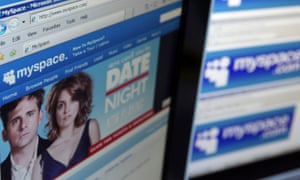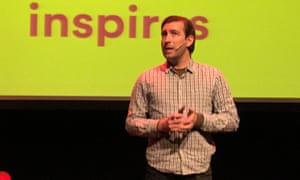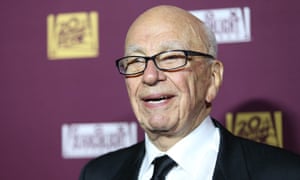But I put my old password in and it WORKED! SO I WAS LIKE, ALL RIGHT! NOW TO!?
Whu?
Whut the fuck?
WHAT IS THIS CRAP!?
Where's ALL OF MY STUFF AT!?
What is everything MUSIC NOW?! AND WHO ARE THESE PEOPLE!?
Next thing I started thinking of this song by Slick Rick from back in the day;
So I'm trying to find my OLD CONTACTS;
Like DJ SANCHEZ!? IN MIAMI!? He was an AVID READER OF MY CATFIGHT STORIES. Some of which are sprinkled across the early part of this blogsite.
But the new Myspace?
Man, I don't get it, nor do I like it.
So?
I did some digging and found this article immediately;
MySpace – what went wrong: ‘The site was a massive spaghetti-ball mess’
Former VP of online marketing Sean Percival on corporate interference, Punch The Monkey, and a failed attempt to buy Spotify: ‘They sure as hell were not selling to us...’
In 2015, Sean Percival is a partner at Silicon Valley seed accelerator 500 Startups, but from 2009 to 2011, he was working at MySpace as its vice president of online marketing – just as the social network lost its crown to Facebook.
In a speech at the By:Larm conference in Oslo this week, Percival gave an insider’s view of what went wrong at MySpace, from the “massive spaghetti-ball mess” of its website and the “politics, greed” of parent company News Corporation to a doomed attempt to acquire music streaming service Spotify.
His talk was aimed at startups looking to learn the lessons from MySpace’s decline, but it seemed as relevant for the largest internet companies today, such as Facebook, as they seek to avoid a similar fate.
The early years
“MySpace actually didn’t really exist as a company. They were part of a marketing company, and this company was doing very early e-commerce: they were selling junk, basically. They were selling diet pills. They were selling little remote-controlled helicopters,” said Percival, describing MySpace’s birth as a response to the popularity in 2003 of social network service, Friendster.
“They looked at Friendster and said: ‘Wow, people are spending insane amounts of time on this site. We should copy it.’ And all they wanted to do was build a social network so they could have distribution for their ads, selling these horrible products to people. And that’s where it began.”
Percival said that in its early days, MySpace was a pioneer in what’s now called influencer marketing. “They went to Friendster and found all the hot girls who got kicked off Friendster. You may remember Tila Tequila. She was a very very big deal on MySpace. But she was a Friendster user,” he said.
“They kicked her off because she was just too damn sexy. And MySpace said: ‘Hey, we don’t care! We’re from Los Angeles, sex is what drives the economy out here. We’re happy to have you’. So they bring in Tila Tequila.”
But Percival said just as important for MySpace was attracting bands, photographers and other creative people. “You were interested in what they were doing. You lusted after them because they were sexy… As the normal people – us – joined, we were just inundated with all these exciting people.”
This sparked Percival to set up an agency that helped brands to create profiles on MySpace and grow their network of friends, although MySpace itself was trying to charge brands for this kind of service; after “scary legal notices” from the company, he shut down his business.
News Corporation: ‘the corporate policies crept in’
Percival wouldn’t join MySpace until a few years later, but remained an interested observer as it grew, including watching its $580m acquisition by News Corporation in 2005 – the impact of which was still being felt when he joined the company as vice president of online marketing in 2009.
“News Corp is a monster organisation, just mammoth proportions: many many billions of dollars, many many users. At the time I remember they said: ‘Hey! We’re not going to disrupt anything. We’re going to let it run: you’re special!’ And just preserve that and not do anything,” he said.
Percival said this was very much the external message, but that more recent technology acquisitions – Facebook buying Instagram or WhatsApp for example – have seen the acquirers learn from News Corporation’s mistakes in not sticking to its promises.
“The reality was that as time went on, the corporate policies creeped in. The lawyers came in, the accountants. Everything came in. As opposed to being this nimble, fast-moving sports car, they started to become slow,” said Percival.
“That was always the big challenge for me. I’d want to do something very very basic, and it’s like ‘okay, well, let’s go through the legal process’. We had 40 to 50 lawyers on staff, and we were spending $800,000 a month on external lawyers too.
“We’re getting attacked from all sides. The Department of Justice is coming after us because there’s really bad stuff happening. There’s paedophiles! Weird stuff going on on MySpace. So we’re trying to fight this, and we’re just getting attacked from all angles.”
The result? “As opposed to preserving and letting it run as it is, it just got really, really corporate. Politics, greed, all the horrible things that come with big corporations, slowly sort-of crept in,” said Percival.
‘They knew that the end was near’
By 2009, MySpace was still the biggest website in terms of traffic, but Facebook was growing fast by this point, and according to Percival the atmosphere was defeatist when he joined the company.
“I remember the first meeting they had me set up with the whole team, and it was the saddest, most awkward meeting I’ve ever been in, in my life. And I’ve been in some really sad meetings. Literally sat there and everyone was so defeated,” he said.
“The analogy I use is like you were the half-time [basketball] coach, and I walk in and it’s half-time, and you’re down by 100 points … They had been beat down by that corporate bureaucracy, they knew they were about to lose to Facebook. They knew that the end was near. They could smell it.”
Percival said that one of MySpace’s main failings at this point was bloat, with verticals covering celebrity, fashion, sport and even books.
“I can tell you: literature nerds were not going to MySpace to debate the latest John Grisham book! They [MySpace] just went everywhere, and that was a big, big mistake,” he said.
“Facebook has done a really good job of not doing that … Lesson learned: do one thing great, not do many things good. Or in our case, we were doing many things kinda crappy.”
Percival noted that at its peak, MySpace was attracting around 100 million monthly users – small beans compared to the 1.39 billion that Facebook had by the end of 2014, driven by internationalisation as well as smartphone penetration.
MySpace did try the global expansion thing, but by opening offices in as many countries as possible. “Literally wasting hundreds of millions of dollars, fighting to set up teams, fighting to set up legal music rights and so on,” said Percival.
“I’m pretty sure that in almost every market we lost money, with the exception of Mexico. Whereas Facebook said: ‘we don’t need to set up offices that quick; this thing is gonna scale’.”
‘The site was such a massive spaghetti-ball mess’
Percival noted that MySpace also spent hundreds of millions of dollars building its own content delivery network (CDN), whereas websites today would use a cloud network like Amazon’s.
“More money. More money pouring out. The total of money lost? I don’t even know, but it is in the billions of dollars. Thankfully News Corp has a few billion dollars and they could afford it,” he said, before recalling the “mess” that the original MySpace became in its later years.
“The site was such a massive spaghetti-ball mess. You could do these tree flowcharts of your website … and we did it, and it was like the fricking seven scrolls that you could see. It just went on forever and ever and ever… We were not nimble in any way, shape or form.”
Percival said the “last nail in the coffin” for the original MySpace was a comment made by News Corp chief Rupert Murdoch in an earnings call that MySpace would make a billion dollars in revenue that year.
“At the time we were doing $50m to $100m, so we were at a tenth of where we needed to be,” said Percival. “He made that statement, but as far as I was aware, no executives knew that was the directive. So everyone scurries around … ‘The boss said we have to make a billion dollars, so I guess we need to make a billion dollars’.
“And that’s why we had things like MySpace Books. It’s not because our users wanted to talk about books… But someone wanted to sponsor that. Someone was willing to pay us to build MySpace Books – HarperCollins – so we built it for $250,000 or $500,000. And those things were just rampant.”
Percival remembered an infamous ad called Punch The Monkey, which invited people to click on an animated monkey to win some kind of prize – but which usually linked through to surveys and requirements to sign up for credit cards or other services to qualify for the prize.
“It was one of the most annoying things you could do with an ad, but they just didn’t care: they had no respect for the users. It was all about monetisation. Making money, squeezing every dollar out of it,” said Percival.
“And think about Facebook, the ultimate winner here. No focus on monetisation early on. Very few ads. And when they do ads, they actually do very nice ads. They do more native, more inline advertising, things that feel a little more natural. Not Punch The Monkey.”
Percival said that during his time heading online marketing for MySpace, he wanted to build a better “onboarding” process for new users and a better retention mechanic for people coming back. “But I’m trying to fight for developer resources and get these things built, and it’s ‘No no no, got to build Punch The Monkey 2.0, gotta drive the revenue…’.”
‘Unknown thing: we tried to buy Spotify’
Could MySpace have been saved? Percival talked about what the company might have done differently, and admitted that by the time he arrived in 2009, it was possibly unsaveable – not least because by that time, it was difficult to hire the most talented engineers against competition from Facebook, Google and other rising tech companies.
“I always thought, and I pushed this internally but we could never get buy-in, was to change the name. At that time MySpace was not cool any more,” said Percival.
“The baggage was too much. Users had too many bad experiences. They would go on there and they’d get hit with spam. There’d be all this weird stuff. The baggage was really intense.”
Percival also said that he thinks MySpace should have gone “all in on music” once it realised that Facebook was about to overtake it in the overall social networking battle.
“We never wanted to admit to ourselves that we’d lost the social war. The identity was owned by Facebook. On Facebook you were your real name, you were yourself. On MySpace you were like 420princessxxx, you’re all these weird pseudonyms,” he said.
“So we’d lost the social war, in a sense, but we really should have just gone all-in on music. At the time MySpace had a very, very unique deal with labels. They were the only site on the web that you could go and play any song from a major label for free.
“You can do that on Spotify now … but that was so unique. It was a very special deal: we paid about $10m a year to get that deal, just to have the deal, and then we paid for all of the usage as well. That was something we had that nobody else had. We brokered that deal early on with the labels, and nobody else could get even close. We should have gone all-in on music and cut ship on everything else.”
Percival thinks Spotify is the most obvious successor to MySpace in terms of blending streaming music with social features.
“Unknown thing: we tried to buy Spotify and they sure as hell were not selling to us. They didn’t need to,” he said, before suggesting that Spotify has a much better chance of “getting” social than Apple and Google, which are shaping up to be its main competitors.
“There are companies that do not get social and they never will. Apple’s one of them, Google is the other: they’ve failed with Google+. When your culture is engineering-focused, you do not understand social. Social is a very emotional experience. Engineers are not so much, in a lot of cases,” he said.


No comments:
Post a Comment